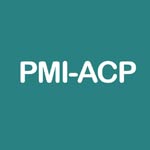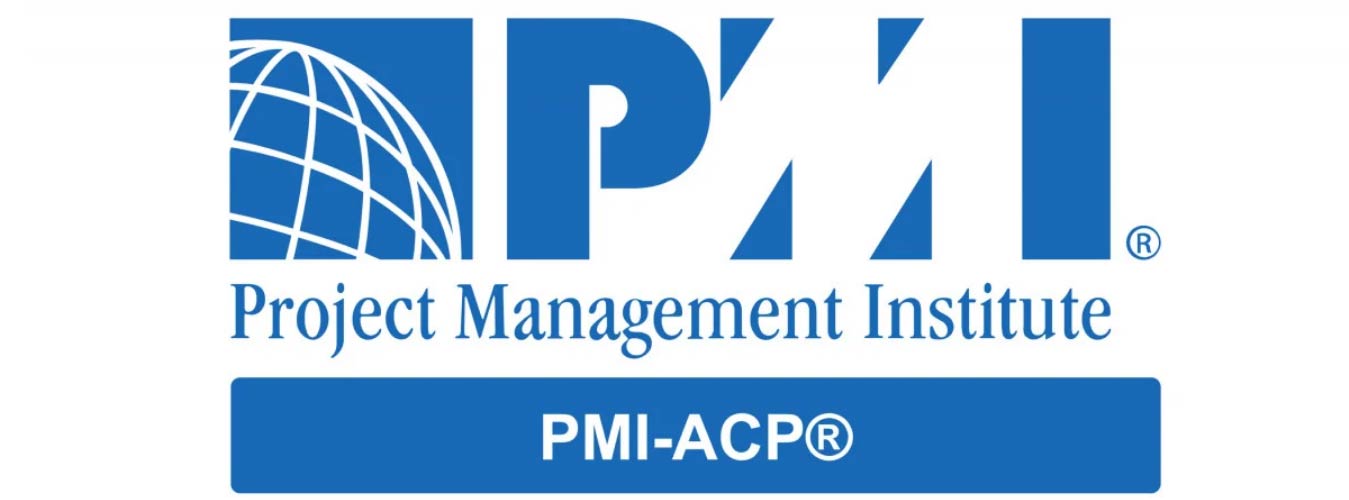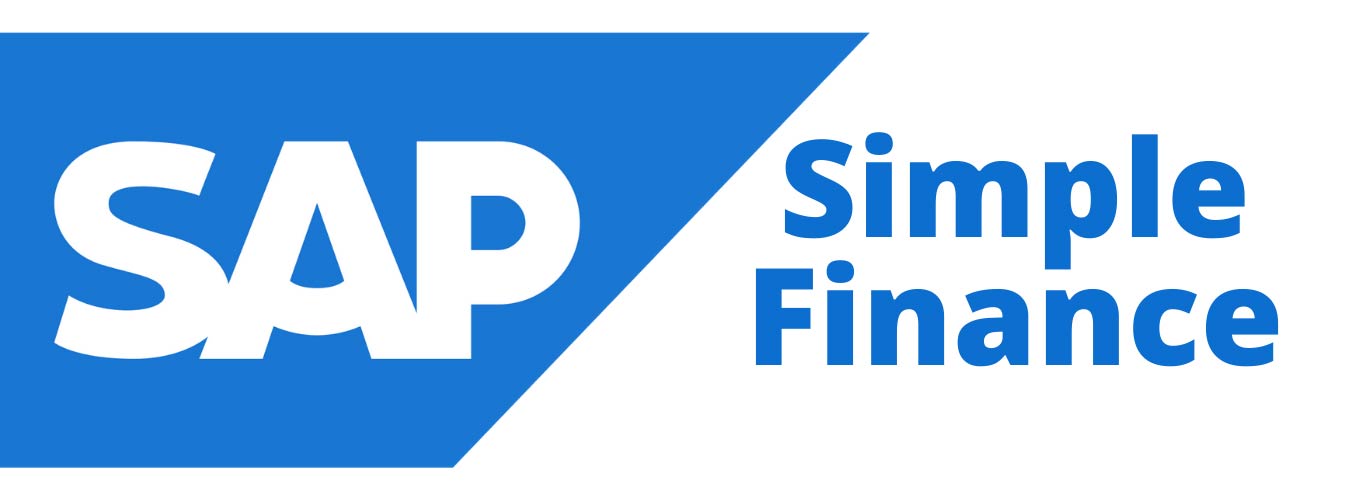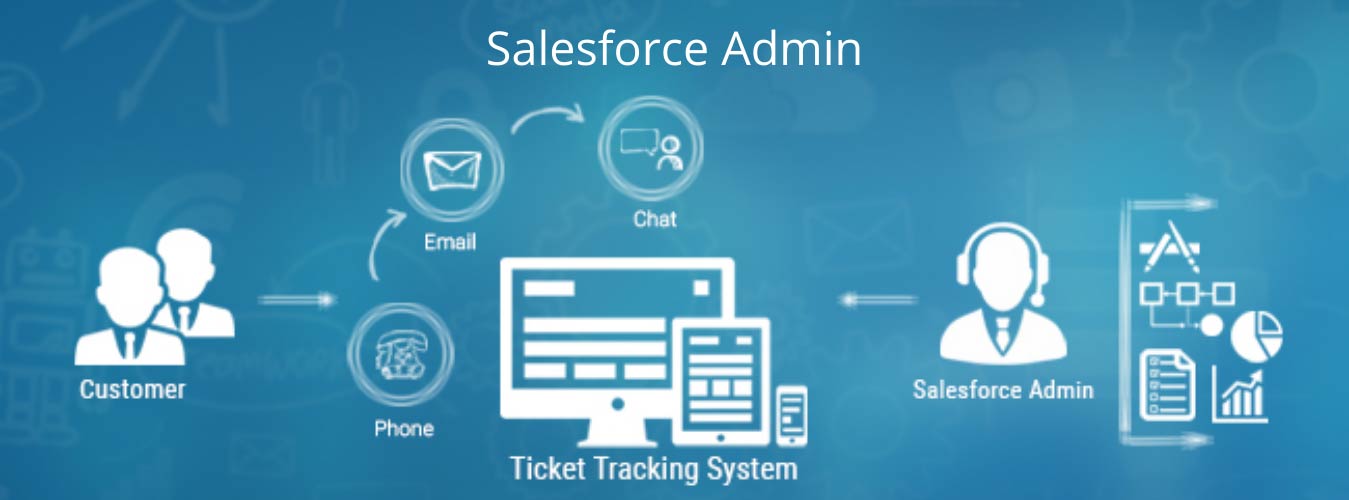PMI ACP

PMI ACP
PMI-ACP is found to be PMI’s fastest growing certification, showing exponential signs of growth. It has been established by recent research that enterprises that are highly agile and more responsive to market dynamics have a higher track record of project completion with greater quality. The PMI-ACP covers several approaches to agile such as Kanban, Scrum, Lean, Test-Driven development (TDD) and Extreme programming (XP). This certification is aimed at enhancing the versatility of a professional’s skillset without regard to the type and scope of the project.

Course Summary
Agile practitioners are professionals who possess an even rare subset of skills that include highly developed collaboration skills, rapid response times, and comprehensive experience in the practice of multiple agile approaches. PMI has come up with its PMI Agile Certified Practitioner or PMI-ACP which is aimed at recognizing and validating the knowledge of agile principles and existing skills with Agile techniques.
Project Management Institute has launched the PMI-ACP certification in the year 2011. Likewise, the other courses, the same level of standards for this certification is offered by PMI. The PMI-ACP certification increases the adaptability, comparability, and credibility to professionals who practice Agile methodologies in their organizations for their respective projects which in turn boost the team productivity and increase the customer satisfaction.
PMI-ACP is found to be PMI’s fastest growing certification, showing exponential signs of growth. It has been established by recent research that enterprises that are highly agile and more responsive to market dynamics have a higher track record of project completion with greater quality.
The PMI-ACP covers several approaches to agile such as Kanban, Scrum, Lean, Test-Driven development (TDD) and Extreme programming (XP). This certification is aimed at enhancing the versatility of a professional’s skillset without regard to the type and scope of the project.
Job titles and salaries for PMI-ACP
As on April 8th, 2017, Payscale.com states the job titles of PMI-ACP professionals and their salaries as given below:
- Project Manager, Information Technology (IT): $72,524 – $136,674
- Senior Project Manager IT: $86,665 – $145,834
- Agile Coach: $91,232 – $165,707
- Project Manager, Software Development: $69,043 – $148,506
- Program Manager, IT: $95,345 – $182,435
Course Highlights
- Agile Principles and Mindset enables professionals to explore, accept and apply agile principles and mindset within the project team and enterprise
- Value-driven delivery empowers professionals to deliver valuable results by generating high-value increments for review in short time frequently, depending on stakeholder priorities.
- Stakeholder Engagement helps engage present and future interested parties by developing a trusting environment that collates their needs and balances their requests with an understanding of the cost and effort expended.
- Team Performance section which is aimed at helping employees create an environment of trust, learning, collaboration, and conflict resolution that greatly enhance team self-organization, enhancing relationships among team members, and fostering a culture of high performance.
- Adaptive Planning refers to generating and regulating a constantly evolving plan, from initiation phase to the closure phase, depending on objectives, values, risks, constraints, and a whole lot more.
- Problem Detection and Resolution involves continuously identifying problems, impediments, and risks which are to be prioritized and resolved within a stipulated amount of time.
- Progressive improvements and enhancing effectiveness, quality of product and process value are part of Continuous Improvement.
Pre-requisites
This course needs the following pre-requisites from candidates:
- 2,000 hours of generic project experience working on the project . An existing PMP or PgMP is an alternate way to satisfy this requirement.
- 1,500 hours working on agile project teams or with agile methodologies. This requirement is in addition to the 2,000 hours of general project experience.
- 21 mandatory contact hours of training in agile practices
Why learn PMI-ACP?
This course will enable you to:
- Develop the knowledge and skills needed to clear the PMI-ACP certification exam along with the requisite 21 PDUs
- Build a working knowledge of the Agile Principles of KANBAN, SCRUM, XP, and TDD
- Build the expertise of implementing multi-iterative development models for projects of every scale
- Develop the capability to deliver high-Velocity Stories and Epics
- Apply the principles of SCRUM and KANBAN in a live project
- Enhance Project management expertise considerably by implementation of Agile principles
- Scale up project management techniques according to need and requirement
- Focus on multi-iterative development models for higher operational efficiency in projects
Who can learn PMI- ACP?
Across the IT/ECH industry, PMI-ACP training program is a professional requirement for all project management roles globally. This certification is best suited for:
- Project Managers and any professional aspiring to be a Project Manager
- Agile team members and Project Executives/Engineers
- Associate or Assistant Manager of Projects and Team leads and Managers
- Software Developers
Advantages of PMI-ACP
Given below are the distinct advantages of taking up PMI-ACP certification:
- Competitive Advantage over your peers:
Agile Certified Practitioners work towards optimizing the principles and practices of a team that in turn will enhance the performance of the team. Agile professionals are trained with a focus to unifying the most efficient and appropriate agile methodologies to ensure high quality in project tasks. Professionals who attain a certification will receive a quick response at work providing them with a considerable competitive advantage over their peers. Since enterprises always look for professionals who are knowledgeable and competent to lead the most critical projects of a company.
- Increased Adoption of Agile:
The research firm Standish group has surveyed and found that enterprises the world over have begun to see a high degree of success in adopting Agile methodologies.
As indicated by survey firms such as Forrester and other technological firms, a huge amount of momentum has amassed and started a trend to adopt Agile methodology.
Huge Demand for Agile Professionals:
A proportional rise in the demand for highly skilled project management as there is an increased adoption of Agile methodologies across the globe. Technological research conducted by various firms have shown that project management exponents are seen implementing agile principles and practices with great success, thus making it a highly popular choice.
- Agile Better than Traditional Waterfall Approach:
Agile methodologies rank much higher than other popular yet less efficient methodologies such as the Waterfall methodology in terms of process efficiency and profitability.
Companies using PMI-ACP
The list of organizations that have adopted PMI-ACP principles and therefore recruiting professionals in the same regards are as follows:
Suzuki Auto
While being at the forefront of innovation, this automobile giant it has begun employing certified professionals with PMI-ACP certifications.
K-Mart
This is a US-based retailer which has adopted PMI-ACP practices and professionals alike, to improve operations and boost its bottom-line.
Honda Automobiles
This corporation has similar adoption policies for PMI-ACP using Agile practices and techniques to better operations and project processes.
Why bumaco global?
- World-class course content will ensure you stay on top of the competition in the market
- Blended learning model of both online training sessions combined with classroom training sessions offer the best of both approaches to learning
- Industry-centred live projects that ensure work-experience while undergoing certification
- Highly responsive trainers who use innovative teaching methods to explain concepts
What Do We Provide?
- Experienced faculties who are certified in the area of Android
- Quality study materials like assignments, assessments, case studies and video presentations
- Access to tools to perform analysis and reporting
- Become a certified with the concepts, techniques and its tools
PMI Agile Certified Practitioner
- This certification identifies and authenticates a professional’s knowledge of agile principles and expertise with agile approaches. In turn, this will set the professional apart from the competition and give them a competitive edge.
- This is best suited for professionals who use agile approaches such as Scrum, Kanban, Lean, Extreme Programming and Test Driven Development, possess excellent collaboration skills and welcome challenges in the form of complexity and displaying rapid response times.
- This is meant for professionals working in agile teams or if their organization has adopted agile practices. This certification is best to validate expertise in projects executed in real-time.
Prerequisites:
- 2000 hours of project experience working on teams but this is not mandatory
- 1500 hours working on Agile project teams or with agile methodologies. This hour is in addition to 2000 hours of project experience
- 21 contact hours of training in Agile practices
Exam Details:
- The certification exam for PMI-ACP includes 120 multiple-choice which has to be answered in three hours
- Renewal of the PMI-ACP certification needs a minimum of 30 Agile PDUs or 3 Agile CEUs once every 3 years, and these will count towards both PMI-ACP and PMP certifications at the same time.
- PMI-ACP exam fees are $435 for a PMI member and $495 for PMI Non-member.
List of Agile Project management certifications
- PMI Agile Certified Practitioner (PMI-ACP)®
- Certified SCRUM Master (CSM)
- Agile Project Management Certification.
- Associate's or Master's Certificate in Agile practices.
List down the activities of Scrum.
The activities of Scrum are Sprint planning meeting, daily scrum, development work, sprint review, sprint retrospective. The idea of sprint planning meeting is to discuss what can be delivered and what will be delivered by the end of sprint based on discussions with the product owner and the team. Daily scrum is a 15-minute meeting which focusses on what has already been achieved, what will be achieved and what can be obstacles to be encountered to achieve it. Sprint review also focuses on similar things like daily scrum but the report is also handed to the product owner in this case. Sprint retrospective is all about process, people, tools, and relationship.
What are the Agile Estimation Tools and Techniques?
The nine Agile estimation techniques are
- Planning poker
- Bucket system
- Big/Small/Medium
- TFB/NFC/1(Sprint)
- Dot Voting
- T-shirt sizes
- Affinity mapping
- Ordering protocol
- Divide until maximum size or less
What are the seven core values of Lean Software Agile Development Model?
The seven core values of Lean software Agile Development Model are:
- Eliminate waste: Removing anything that doesn’t deliver values
- Empower the team(Respect people): Respecting the team and their own decisions so that micro-management can be avoided.
- Deliver fast: Delivering values fast to increase ROI
- Optimize the whole: and align them to organization goals.
- Build quality in
- Defer decisions: Delaying the commitment making so that more information can be availed.
- Amplify learning(Build knowledge): Communicating often to get to know more about requirements, environments etc.
What are the principles and practices of Kanban method?
The principles include starting with what we are doing now, agreeing to pursue evolutionary change, respecting the current processes, roles, titles, and responsibilities.
The practices include visualization of the work, workflow etc, limiting WIP, managing flow, making process explicit, implementing feedback loops, improving collaboratively, evolving experimentally.
Describe the practices of Feature Driven Development Agile Model.
Practices of FDD include
- Domain Object Modeling: Knowing and explaining more about the domain of a project.
- Developing by Feature: A big task can be broken down into smaller modules to work on each module for increasing the efficiency.
- Individual Class (Code) Ownership
- Feature Teams: Forming teams within teams for creating multiple designs and maintaining them.
- Inspections: To review a product from time to time.
- Configuration Management: To make changes to a code and to track them with maintaining the tracking code.
- Regular Builds Adding new codes into the existing ones.
- Visibility of Progress and Results
What is the difference between PMP and PMI - ACP?
| PMP | PMI-ACP |
| PMP is meant for professionals intending to understand project management on a very broad level. | Professionals with interest in just Agile should go for PMI-ACP |
| PMP will help professionals comprehend project management from a bird’s eye view | PMI-ACP is the subset of project management and is more detailed and niche oriented |
| PMP enables professionals to gain a thorough insight into risk management on a general basis | In PMI-ACP, professionals learn risk management from the agile perspective, |
| It helps professionals calculate the ROI in the general project management terms | PMI-ACP is the subset of project management and calculating ROI is slightly more challenging |
What are the benefits of obtaining PMI-ACP certification?
The advantages of doing PMI-ACP certification are:
- High demand: This certification was developed by PMI because of the following reasons:
One being Agile is in high demand and the other being that the certification allows other people to determine if the project manager has the knowledge about Agile(like its techniques, tools, principles etc). - Coverage: This certification focus on multiple methods of Agile development and not on only one method. Some of the methods are Scrum, Kanban, Crystal, DSDM etc.
- Higher compensation: The proportion of corporate sector states that more skills open doors towards more salary packages. This certification involves the skills related to Agile development which indeed opens doors to more money.
- Professional Growth: The certification makes a person able to learn and implement almost everything related to Agile which is in great demand today. So, more learning is equal to more implementation and more implementation is equal to more career or better to say professional growth.
- Job opportunities: Job opportunities grow because this certification makes a person highly qualified in the fields of project management and the like.
What is the average salary of PMI-ACP certified professionals?
The average salary for PMI-ACP practitioner are as follows:
One can notice the benefits of this certification by taking into account that the average salary of a non-certified project manager is approximately equal to $96,000 p.a. And that of PMI-ACP certified project managers is equal to $123,000 p.a.
What are the various titles for PMI-ACP professionals?
The job titles for PMI-ACP professionals are:
- PMP scrum master
- Technical business analyst
- Agile coach
- Project manager
How is PMI-ACP different from other Agile certifications?
There are many Agile certifications but each certification differs from others when it comes to prerequisites or exam content or exam-difficulty.
- Prerequisites: In PMI-ACP, general project experience is desired in addition to agile-specific experience and education. While for other Agile certifications, no such prerequisite is demanded.
- Exam-content: The examination paper for PMI-ACP consists of 120 questions that are to be attempted in 3 hours. In other certifications, the question count is still very less, like in CSM, 25 questions are needed to be attempted in 3 hours.
- Exam-difficulty: An individual who attempts PMI-ACP certification is tested on an individual’s level of professionalism in Agile project management, its tools, and techniques etc.For another exam, the difficulty is comparatively less like CSM examination can be cleared by every individual who gets enrolled in this certification, i.e., the passing percentage is 100%.
List down the knowledge and skills covered in PMI-ACP
The knowledge and skills covered in PMI-ACP include active listening, Agile communication management, Agile problem-solving strategies and tools, Agile manifesto and principles, Feedback techniques for products, assessing and incorporating communities and stakeholder values, incremental delivery, stakeholder management, agile brainstorming strategies, Agile knowledge sharing, Agile team motivation, building empowered teams, Agile leadership tools and techniques, Time, budget and cost estimation, coaching and mentoring within teams, polarisation techniques,value-based decomposition and polarisation, product and quality standards, Agile framework and terminology, Agile facilitation methods, building high- performance teams, Agile participatory decision models, Agile business case development, Process Analysis techniques, self-assessment, value-based analysis, Agile contracting methods, innovation games are some of the skills covered in PMI-ACP.
What are the Prerequisites of PMI-ACP Course?
This course needs the following pre-requisites from candidates:
- 2,000 hours of generic project experience working on project teams. An existing PMP or PgMP is an alternate way to satisfy this requirement
- 1,500 hours working on agile project teams or with agile methodologies. This requirement is in addition to the 2,000 hours of general project experience.
- 21 mandatory contact hours of training in agile practices
What are the system requirements to attend the live sessions?
- Processor I3 with 4GB RAM, OS can be 32 or 64 bit (Laptop/Desktop)
- Internet connection with Min 1 MBPS speed
- Good quality headset
- Power back up
- You can also log in through your Android mobile phone/ Tablet with 4G internet connectivity
What if the trainee miss any session?
The trainee can watch the recorded video of all the sessions in the LMS or Trainee can attend the missed session in the upcoming batches.
What do the trainee get from the LMS?
The trainee will have the access to Recorded sessions, Assignments, Quizzes, Case Studies, few course documents posted by trainers, Placement related docs etc.
What is the validity of the LMS access? What if the LMS access is expired.
The trainee will get 1-year access to the LMS. You can contact our support team to extend the validity of the LMS.
Will the trainee get any project to work on with SAP MDG course?
Yes, of course! The trainee will get the project at the end of the course; you need to submit a project. Our trainers will assist you to complete the project.
How are the practicals done?
The trainee will get step by step assistance on VM installation from our expert trainers during the practical sessions, post live sessions, you can practice at your end and submit your queries if any to our support team support@bumacoglobal.com for further assistance.
What are the types of training we offer?
- WBLT- Web-based live Training
- WBVT- Web-based Video Training
- One on One live training
- Self-paced training
- In class training
What are the benefits of online training ?
- Flexible location
- Flexible schedule
- Travel free
- Time saving
- Cost saving
- LMS access
- You will never miss a class
- Two-way interactive
- Fast learning
- Trainer support for 1 year
Who are our Trainers?
Our trainers are industry experts having 10 to 15 years of industry experience and 3-4 years of training experience. Most of the trainers are working professionals who teach the real time scenarios which will help the students to learn the courses in an effective manner.
Will the trainee get the certification post the course completion?
Yes, Trainee will get the participation certificate from Bumaco global upon successfully completing the course.
What if the trainee has more queries and need assistance?
The trainee can drop an email to support@bumacoglobal.com an automatic ticket will get generated. Our support team works 24/7 to assist you with all your queries.
Be the first to add a review.
Designed & Developed by www.brandhype.in
Copyright © 2020 Bumaco Global. All rights reserved.


